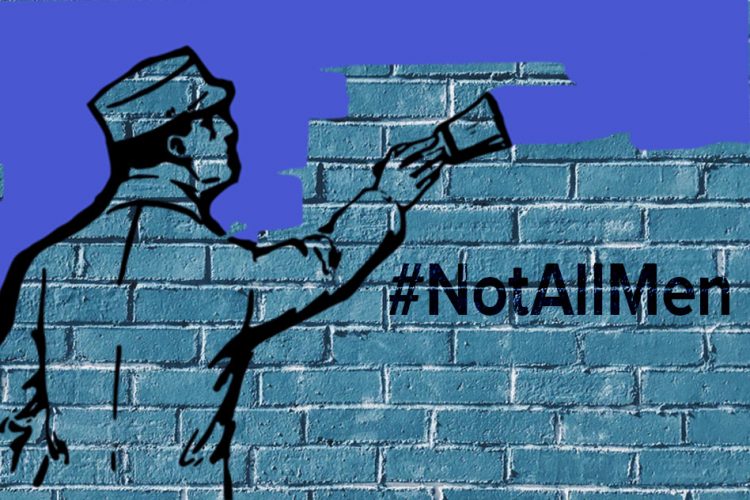Privilege is that kind of a thing. If you are born into it, if you have benefited from it, if you are wittingly or unwittingly propagating it, then you are likely to deny it. Occasionally, as the most ungracious form of indulgence, you will even make a claim to the opposite. Play the bully as a victim card. Being born into wealth, for instance.
Being a male is that kind of privilege, too. It matters not what kind of a male you are. If you are straight, white, male and of American/European/Scandinavian ancestry, you enjoy – by default – the highest amount of opportunity. If you are straight, male and brown, that opportunity is more limited, yet its there. If you are straight, black and male, even less so, but its definitely better than being black and female.
While the absolute and extreme version of this privilege being exercised is unmissable and easy to call, a milder variant affects a lot of otherwise, well-meaning, decent men. One that I suffered a lot from and continue to do so – in hopefully decreasing strains. One that makes men appear defensive, small and frankly, petulant.
It is what can be called as the ‘not all men’ syndrome. Not all men are violent. Not all men are sexist. Not all men are misogynists. Not all men are homophobes. Basically, whenever men think or say that ‘not all men’ are like this or that.
At the heart of the ‘not all men’ argument lies a deeply held belief that some men try hard to consciously be respectful, mindful and sanguine with and of women or for that matter, of people with different orientations. That we fight dearly for equality and fairness. Of course, we do.
We frequently point to the amount of progress that has been made where attitudes to women and the opportunity on offer is concerned. And yet, if anything, that should only tell us of the magnitude of the battle on hand, that this progress is merely a good start.
Women know that not all men are sexist. And yet, this co-exists with the fact that all women – without exception – have to navigate a world, every single day of their lives which looks, feels and is experienced like a devil’s obstacle course of the real kind. One, at the very least, different and decidedly difficult from what men experience. That’s the mess they are stewing in. That’s the fault line they deal with.
What we perhaps fail to understand is that this is not personal at all. That, this not a failing or weakness, or even lack of trying on part of men.
Thing is, not one of us is immune to the sexism or patriarchy that is hardwired into us. The kind that was bequeathed as a legacy when we were young and not paying attention. The kind that is embedded in the air that we breathe, the systems we interact with and the institutions we are a part of.
Even as we are making the right noises, the everyday sexism, the everyday misogyny, the everyday condescension, the every day mansplaining continues.
This week, yet again, I have found myself in conversations with multiple women/men of other orientations and the challenges that they have and continue to face.
To be in denial of these everyday small and big battles that women fight – simply because they are women – is both churlish and silly and well, more privileged. We will never understand it, because we don’t have to ever face it. And if you are actively not doing anything about dismantling it, then you are propagating it.
It is not enough if you are not being discriminatory yourself. If you are doing nothing about its existence, you are part of the problem. Yes, a bit like the classic Bushism, if you are not with us, you are against us. Only this time, it would make sense.
The point is we may not be sexist in some ways, but we continue to be sexist in so many other ways. You can be blatantly sexist, or subtly sexist or subliminally sexist, for instance.
Look around. No slang or slur, worth its salt, is ever directed at a man – or any role he occupies. In every language, bad language is always about mutilating the woman’s genitals – whether she is a mother, sister or daughter.
Or the one statement that I heard thrown around a lot while growing up – ‘Don’t cry like a girl’. Look at what that innocuous looking statement is loaded with: a) crying is not acceptable behaviour; b) If you cry, you are a lesser being; c) a girl is some kind of a lesser being.
And then people question why men have issues with crying. This is just one of the many cultural memes that have been passed down to us. The sheer toxic masculinity that surrounds us.











